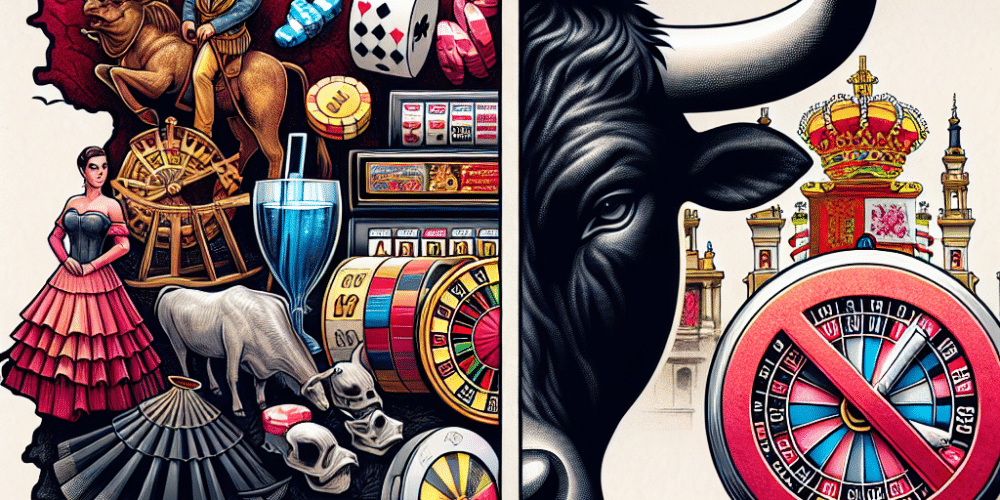At the end of June, a compelling study from the Harm Reduction Journal revealed a significant decline in new online gambling accounts in Spain, plummeting by 55% from 3.01 million in 2020 to just 1.35 million in 2023. This drastic reduction is largely attributed to Spain’s stringent gambling advertisement restrictions and the ban on promotional bonuses, though the latter was partly repealed in 2024.
The Spanish government’s latest move intensifies its stance against gambling, following new data that underscores the widespread issue of gambling addiction. According to 2022 statistics, a staggering 82% of those seeking help in treatment centers for behavioral addictions were primarily gamblers. This alarming trend prompted immediate action from the Ministry of Consumer Affairs, which now demands that clear and explicit warning labels accompany all online gambling materials.
Announcing the new policy, Social Rights Minister Pablo Bustinduy highlighted findings from the Ministry for Health’s 2024 National Drug Plan. This report underscored a clear association between gambling and addiction, affecting both in-person and online gamblers. Bustinduy stressed that the objective of the new warnings is to arm users with factual, unambiguous information about the risks of gambling before any harm can occur.
The new labeling system will do away with the previous “play responsibly” messages, replacing them with stronger warnings such as “Gambling addiction is a risk of gambling,” “The probability of being a losing gambler is 75%,” and “Losses for all gamblers are four times greater than their winnings.” These warnings are set to appear on gaming platforms, digital banners, and social media promotions, aiming to deliver a stark message to potential gamblers.
However, not everyone agrees with this move. Speaking at a safer gambling event, Bustinduy emphasized that the onus should not rest solely on the users. Instead, he argued, “The authorities have a democratic duty to ensure that the environments people access are safe.” He also condemned certain betting operators for exploiting individuals facing financial or personal challenges, a practice observed in both physical locations and online.
The decision to implement these measures falls under Royal Decree 958/2020, which regulates gambling advertising and communication in Spain, and they were put into effect immediately upon announcement last week.
Predictably, JDigital, the trade association representing Spain’s gambling industry, voiced concerns over the new regulation, labeling it “difficult to justify.” They argued that Spain’s regulated online gambling sector is already one of the most strictly supervised in Europe and suggested that drawing parallels between gambling and tobacco might misrepresent their industry.
In addition to these new warnings, Spain is considering reinstating bans on celebrity and influencer endorsements as well as curbing welcome bonuses targeting young people. These measures were initially introduced in November 2020 but were partially relaxed in April 2024. Critics within the industry argue that such comparisons and restrictions could unfairly stigmatize gambling, potentially leading to more harm than good by driving consumers to unregulated markets.
Despite the backlash, defenders of the new policy insist that these warnings are a necessary step in protecting vulnerable populations from the potential harms of gambling. They argue that transparency is key to informed decision-making, and that equipping consumers with knowledge is crucial in combating addiction. The debate continues, with both sides presenting compelling arguments about the best way to manage and regulate gambling in Spain.
As the conversation evolves, it is clear that Spain is at a crossroads, balancing regulatory oversight with industry freedom. Whether these new measures will achieve their intended outcomes remains to be seen, but one thing is certain: the issue of gambling addiction is firmly in the spotlight, and the Spanish government is determined to tackle it head-on. For now, the eyes of Europe are on Spain, watching closely to see how these new regulations will impact both the industry and those it seeks to protect.

Garry Sputnim is a seasoned journalist and storyteller with over a decade of experience in the trenches of global news. With a keen eye for uncovering stories that resonate, Alex has reported from over 30 countries, bringing light to untold narratives and the human faces behind the headlines. Specializing in investigative journalism, Garry has a knack for technology and social justice issues, weaving compelling narratives that bridge tech and humanity. Outside the newsroom, Garry is an avid rock climber and podcast host, exploring stories of resilience and innovation.
















